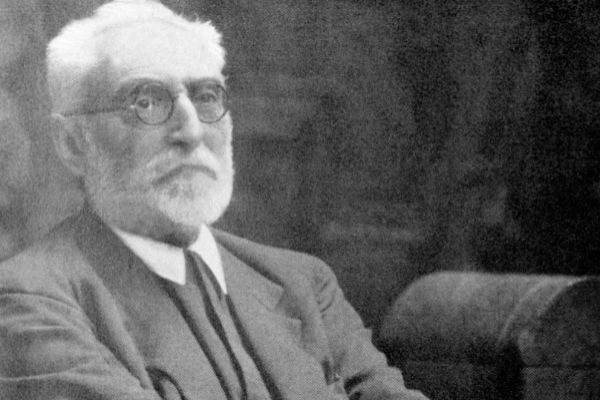After the publication of my biography of Unamuno [Miguel de Unamuno, Taurus], a critic who hates me since ancient times observed that he had not made in the pages of that one single mention of the poetry of Don Miguel, which is not true. Mentions, there are. Even whole transcripts of some poems, but I admit that it is not the Unamunian poetic work that interests me most about my illustrious countryman. It does not mean that I do not like it. Unlike. I am having fun until when he deliberately becomes cacophonic, something that made Borges crazy , who admired him in his youth and suffered his influence , in prose and verse, throughout his life (through Unamuno, he also assimilated Menendez's style Pelayo, at least in prose). Borges was bursting with alliterations like those of "No of Apennine in the rushing skirt: / of Archanda ours, the one that cheers the boche, / I picked up this morning a troche and moche / fresh roses in an emerald field" On the other hand, I get excited because I recognize in them a very Bilbao child atavism that appears even in Blas de Otero "Abolished trees, / you will shine again / in the sun, sound elms ...").
That is the first feature that I love in Unamuno's poetry : his phonetic bilbainez . The poets of Bilbao write, in the first place, for the people of Bilbao, and for that reason, as pretendors, we pretend not to have left the infantile fratry, which aliterates the beautiful because of a naive admiration, as of an uncolonized indigenous, before the Missionaries' tongue: Archanda, boche, troche, moche ... what a wonder.
Another feature that makes Unamuno very nice is that he does not seem to have had a childhood or adolescence as a poet . He began to publish poetry very late, with the 40 more than compliments, and his first poem in Spanish is from 1884, when he was already 20 or almost. It was a very bad poem (I had written before some little songs in Basque that had more grace: in this I also look like him, look where). That delay in writing and publishing poetry denotes shyness, an equally typical shyness plus grace: in this I also look like him, look where).
This delay in writing and publishing poetry denotes shyness, a shyness typical of Bilbao, who suspect that his Castilian is poor and incorrect because of its geographical proximity to the Basque countryside. Obviously, it is not like that. Our Castilian is as good or better than Salamanca, where they have not stopped imitating Unamuno's. In short, the status of a late poet had its advantages in this: it gave him time to read with pleasure all the good Spanish-language poets, from the minstrel or minstrels of the Cantar de Mío Cid to Rubén Darío, to Portuguese, Galician and Catalan, but also to Dante, Leopardi and Carducci, before writing. Sometimes, in the poems of Unamuno one recognizes voices and Romanesque prosodias outside of Castilian . Not content with it, the work of Tennyson was worked on in English, but also, in this aspect of the influences, all or almost all came to him through other Bilbao people: those of Tennyson and the Lakists, through Vicente de Arana; those of the Portuguese by Bulhao Pato and, finally, the latest, the French, via Jean Cassou. The three of Bilbao (well, no: Cassou was from Deusto).
Finally, the last Bilbao feature of Unamuno's poetry is its formal traditionalism , not always of classical roots, but tending towards classicism. And, for fear of making a fool of ourselves, those of Bilbao always opt for accredited formulas, whether in cooking, clothing or poetry. Hence the innumerable sonnets that we have written and will continue to write, and in which Unamuno made true virguerías, as well as white endecasyllables or varied forms of minor art and popular roots. In short, I would say that Unamuno's teaching is fundamentally about having taught his epigons (Bilbao, of course) how to make the most of our limitations.
According to the criteria of The Trust Project
Know more- culture
- literature
Loose cape The worst part
Clothes hangingWoody Allen and José Sacristán
The Paper Sphere Sarah Kane, ghost inventory

